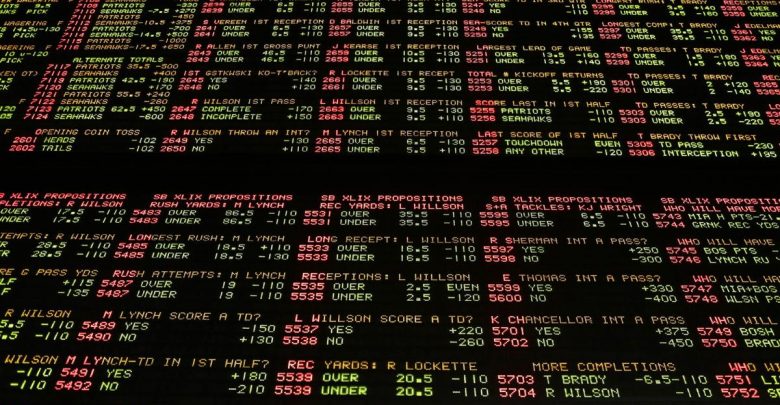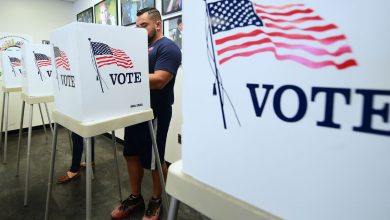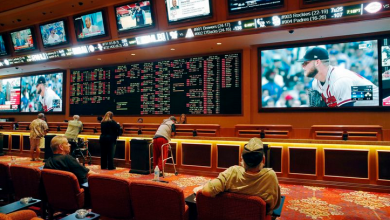Feds Looking to Take Control of Legal Sports Gambling

A new draft of a federal sports gambling bill has appeared in Congress. According to the bill, the federal government would now have to approve state laws legalizing sports gambling. There have been several members of the senate and congress eager to weigh in on the matter since the Supreme Court effectively legalized sports gambling by ruling PASPA unconstitutional. After promises from more than one senator to move forward on sports betting and a recent subcommittee hearing in the House of Representatives, the latest draft surfaced. While we as of yet do not know the author or authors of bill, we do know what it contains and here is our list of the high spots.
– The bill appears to give veto power to the federal government on all state sports betting laws. if the laws don’t meet minimum standards which are uniform from state to state.
-The bill would ban states from authorizing any gambling on amateur events. However, this would not include college sports betting, so no high school or semi-pro action can be wagered on.
-The bill also amends and clarifies the federal Wire Act to allow for some amount of sports betting information to flow across state lines. The Wire Act and its definitive language has always been the main obstacle in legalized sports gambling in the United States. Here, it seems as if it may be revisited.
-Also, the bill will mandate use of official league data by sports gambling operators from sports leagues through 2022. This along with several other points shows the feds wanting to play watchdog and nothing could be more welcome really.
-The bill calls for a “national sports wagering clearinghouse,” which will operate and provide wagering data “in real time” or close to it.
-Another major hurdle in the past is erased as this bill allows for interstate sports wagering compacts to be entered into between different states and tribes.
-The bill says that the federal excise tax of 0.25 percent of handle will now be placed in a “wagering trust fund” for deployment on other sports gambling matters.
-The bill also establishes minimum standards for dealing with problem gambling for operators and related to advertising.
States Will Need Fed Approval
This bill gives a mechanism in which states will not be able to simply unilaterally pass their own sports gambling laws. Instead, they’ll need to take any law they make on the matter to the Department of Justice for approval. As the bill states, to request approval to administer a State sports wagering program, a State shall submit an application to the Attorney General at such time, in such manner, and accompanied by such information as the Attorney General may require.
The bill then goes into certain minimum standards that any state sports betting law must have to receive federal approval. Then, the Attorney General would have 180 days to approve the state’s law. If any problems are found with the law under those federal guidelines set forth in this bill, then there are steps that can be taken to get into full conformity with those federal guidelines. It’s not entirely clear, on an initial reading of the bill, how this will affect the legal sports gambling laws that have already gone through in eight states in the US. Of course, there are even more states likely to pass sports gambling laws before Congress can take action on this bill, which hasn’t even been officially introduced yet.
Get Your Official Data
The bill dives into the issue of “official data” provided by sports leagues and this is a hot topic in state legislatures across the country this year. There the bill states:
“With respect to any sports wager accepted on or before December 31, 2022, provide that a sports wagering operator shall determine the result of a sports wager only with data that is licensed and provided by (I) the applicable sports organization; or (II) an entity expressly authorized by the applicable sports organization to provide such information.”
The second entity would appear to be companies like Sportradar and Genius Sports, which act as middlemen for data between sports leagues and sportsbooks.
The Sports Betting Excise Tax
The bill also addresses the existing federal excise tax on sports wagering, which taxes the handle and not the revenue of a sportsbook at a rate of 0.25 percent. That tax has created a fairly minimal amount of money from Nevada sports betting, however, you can expect that amount to skyrocket as more and more states legalize. This money, which has not been earmarked for anything currently, is deployed for sports betting matters under the draft bill. The bill creates and funds both a National Sports Wagering Commission and a “national sports wagering clearinghouse” with this money that work to help coordinate efforts at the federal level and between states on sports gambling.





